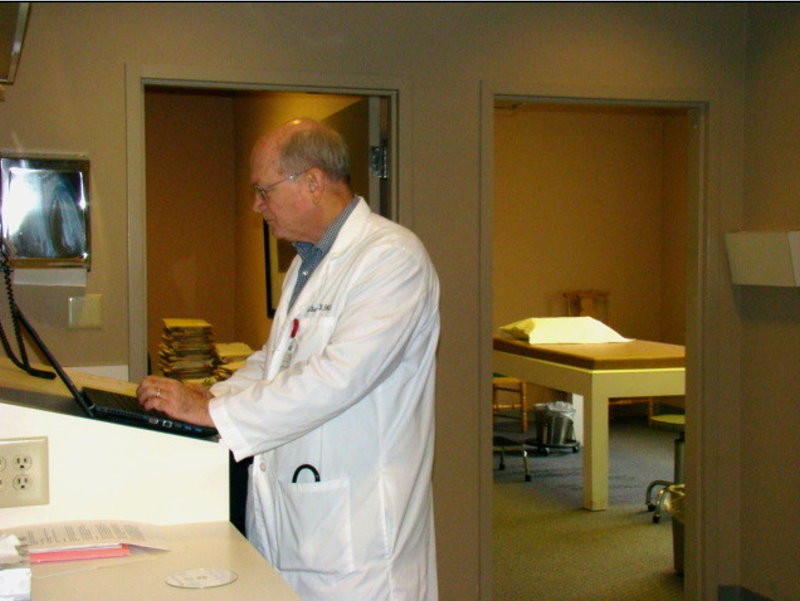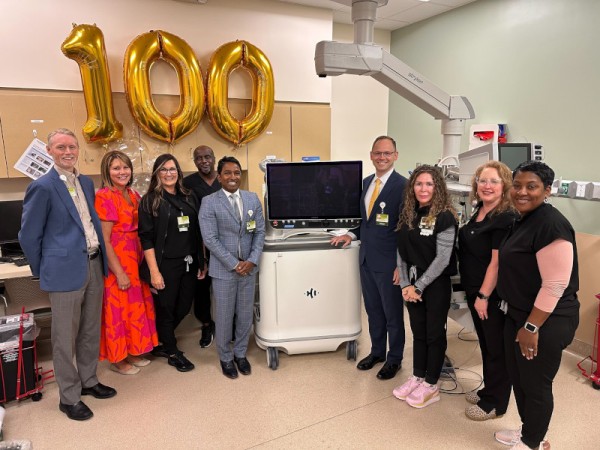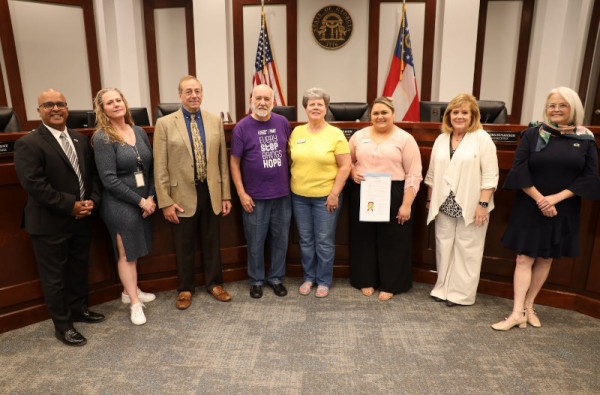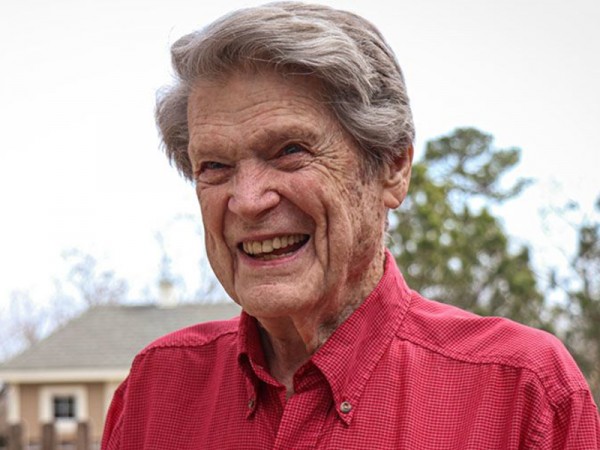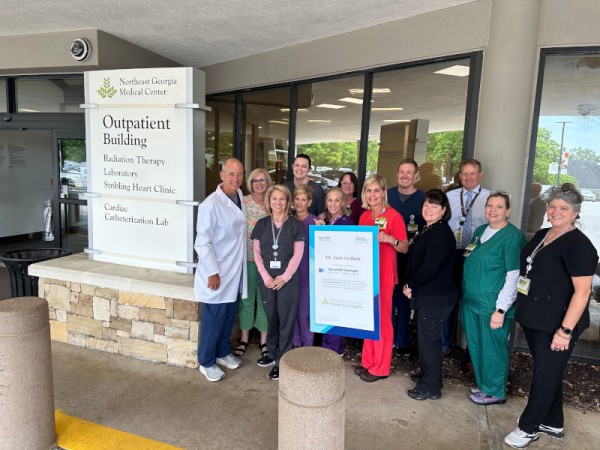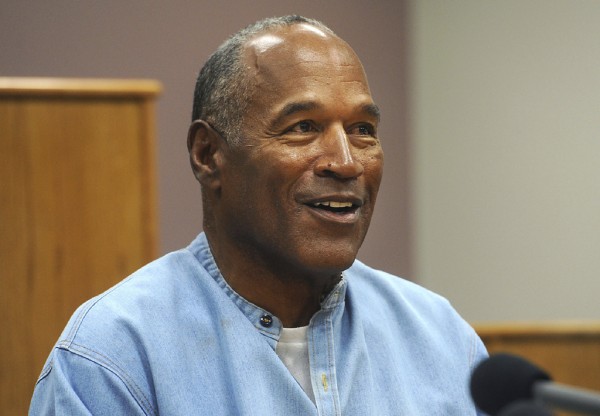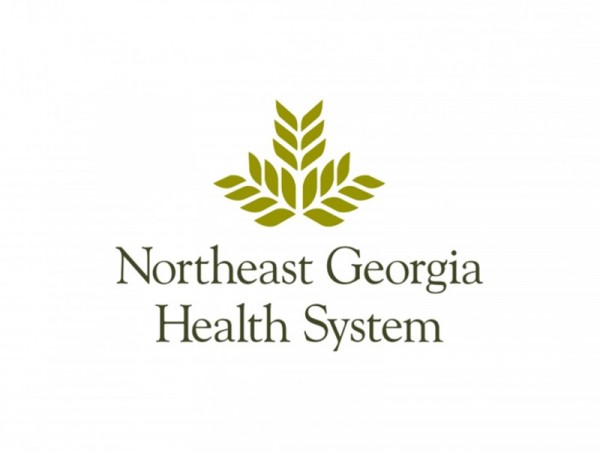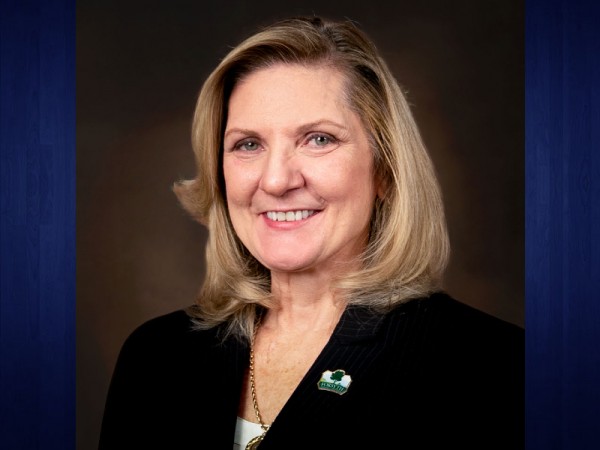Cancer: It remains one of America's deadliest killer diseases, and it has been with mankind since ancient times. But research has brought dramatic breakthroughs and hope for thousands of patients where hope did not exist before. One of our longtime reporters and writers, Jerry Gunn, is one of those who has hope. In his own words, he presents the story of his journey, his struggle, supported by the life-sustaining tools provided by Gainesville's medical professionals who are fighting cancer.
GAINESVILLE - Cancer is deadly. It is old, possibly as old as the Pyramids, as old as the Parthenon.
"You can go back and look at mummies and find cancers and go back and look at stories from early Greece and find discussions of what were obviously cancers, particularly the management of breast cancer," according to Dr. Ken Dixon, surgical oncologist.
My history of cancer dates back four years to August 2011, when a colon tumor was found during a colonoscopy, and I was referred to Dr. Dixon, practicing in Gainesville since 1975. He is a general surgeon who treats colon, breast, liver, stomach cancer, among others. Dixon says a cancer diagnosis is no longer a death sentence.
"No, it is not," Dixon said. "If you look at the nationwide statistics for cancer, we have about 1.6-million new cancers a year in the United States and of those people with new cancers, there are about 585,000 deaths a year. So its a very serious problem, but we do reasonably well with it."
According to Dixon, there are fewer survivors from cancer of the pancreas, advanced lung cancer and aggressive brain cancer. A key to surviving cancer is early diagnosis.
"It's not just the type of cancer but the stage at which the cancer is first found. If its an early cancer, in a lot of cases then we can do pretty well with it; if its a later cancer, the results are not as effective."
Traditionally, three arms of physicians and therapies fight cancer. Following diagnosis, a patient could undergo radiation oncology, medical oncology or surgery. Dixon says those doctors combine forces and consult to determine the best treatment but he hopes there will be a be a fourth; a fourth therapy and treatment is needed, says Dixon.
"In the future I believe there will be a fourth pillar; it's just coming out with some of the immune system therapies, but it's much more in the future than currently," Dixon said. "We've got standards of care that are tried and true and resulted in the cure of a significant portion of patients we see, but actually the line of cure over the last 30 to 40 years has been relatively flat."
The present treatments of radiation, chemotherapy and surgery are maximized. Again a key is early diagnosis. In the Northeast Georgia Health System, there are 1,600 to 1,700 new cancer patients a year. Dixon believes there is a strong medical community with 500 to 600 doctors to serve them.
"We've had a well established cancer program and one of the things we're trying to work on is bringing in more clinical trials," Dixon said. "We're all focused on paying attention to the world as it changes around us and it requires that attention because things are changing rapidly."
Sunday
August 31st, 2025
12:28AM


